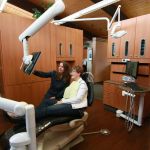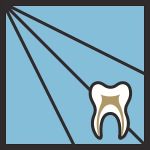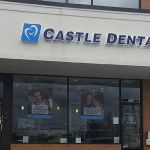- 1-Understanding-Cracked-Tooth-Pain
- 2-Immediate-Home-Remedies-For-Cracked-Tooth-Pain
- 3-Using-Over-The-Counter-Medications
- 4-Dietary-Considerations-To-Ease-Pain
- 5-Maintaining-Oral-Hygiene-With-A-Cracked-Tooth
- 6-When-To-See-A-Dentist-For-Cracked-Tooth-Pain
- 7-Long-Term-Care-And-Prevention-Tips
1. Understanding Cracked Tooth Pain
Cracked tooth pain occurs when a fracture or split in the tooth exposes sensitive inner layers, leading to discomfort triggered by temperature changes, chewing, or pressure. Recognizing the type and severity of the crack is essential to managing pain effectively at home.
Sometimes, cracks are invisible to the naked eye but cause sharp or intermittent pain that should not be ignored.
2. Immediate Home Remedies For Cracked Tooth Pain
Applying cold compresses to the cheek can reduce inflammation and numb the pain temporarily. Rinsing the mouth with warm salt water helps keep the area clean and soothe irritated gums.
Avoid chewing on the affected side to prevent aggravating the crack and use dental wax or temporary filling material to cover sharp edges if available.
3. Using Over The Counter Medications
Nonsteroidal anti-inflammatory drugs (NSAIDs) such as ibuprofen can help reduce pain and swelling. Acetaminophen is also an option for pain relief but does not reduce inflammation.
Always follow dosage instructions carefully and consult a healthcare professional if uncertain about medication use.
4. Dietary Considerations To Ease Pain
Soft foods and lukewarm liquids are recommended to minimize stress on the cracked tooth. Avoiding very hot, cold, or sticky foods reduces pain triggers and prevents further damage.
Maintaining hydration and balanced nutrition supports healing and overall oral health.
5. Maintaining Oral Hygiene With A Cracked Tooth
Gentle brushing with a soft-bristle toothbrush and careful flossing help prevent infection without irritating the crack. Using an antibacterial mouthwash can further reduce harmful bacteria around the damaged tooth.
Proper hygiene reduces the risk of complications such as abscess formation.
6. When To See A Dentist For Cracked Tooth Pain
If pain persists beyond a few days, intensifies, or is accompanied by swelling, fever, or difficulty chewing, professional dental evaluation is critical. Early treatment can prevent further damage and complications.
Dentists may perform bonding, crowns, root canals, or extraction depending on crack severity.
7. Long-Term Care And Prevention Tips
Protect your teeth by avoiding chewing hard objects, wearing mouthguards during sports, and attending regular dental check-ups. Addressing minor cracks early reduces the risk of severe pain and tooth loss.
For expert advice, trusted products, and comprehensive dental care options, visit Dentistry Toothtruth to support your oral health journey.







 Chalet Dental Care5.0 (739 review)
Chalet Dental Care5.0 (739 review) Angela Manning DDS PC4.0 (66 review)
Angela Manning DDS PC4.0 (66 review) Central Pennsylvania Endodontics, LLC5.0 (241 review)
Central Pennsylvania Endodontics, LLC5.0 (241 review) Castle Dental & Orthodontics4.0 (249 review)
Castle Dental & Orthodontics4.0 (249 review) Oral Sleep Appliances, LLC0.0 (0 review)
Oral Sleep Appliances, LLC0.0 (0 review) McDowell Dentistry of Goodyear4.0 (279 review)
McDowell Dentistry of Goodyear4.0 (279 review) The Importance of Oral Health Education During Pregnancy for a Healthy Pregnancy
The Importance of Oral Health Education During Pregnancy for a Healthy Pregnancy Best Tips for Brushing Your Teeth Properly for Healthy Gums: Essential Techniques for Oral Health
Best Tips for Brushing Your Teeth Properly for Healthy Gums: Essential Techniques for Oral Health Why Skipping Dental Checkups Can Lead to Bigger Oral Health Problems
Why Skipping Dental Checkups Can Lead to Bigger Oral Health Problems Advantages of Porcelain Dental Restorations
Advantages of Porcelain Dental Restorations How Can Diabetes Cause Tooth and Gum Problems? Preventing and Managing Oral Health Issues
How Can Diabetes Cause Tooth and Gum Problems? Preventing and Managing Oral Health Issues Healthy Habits for Promoting Good Oral Health and Hygiene: Tips for a Healthy Smile
Healthy Habits for Promoting Good Oral Health and Hygiene: Tips for a Healthy Smile